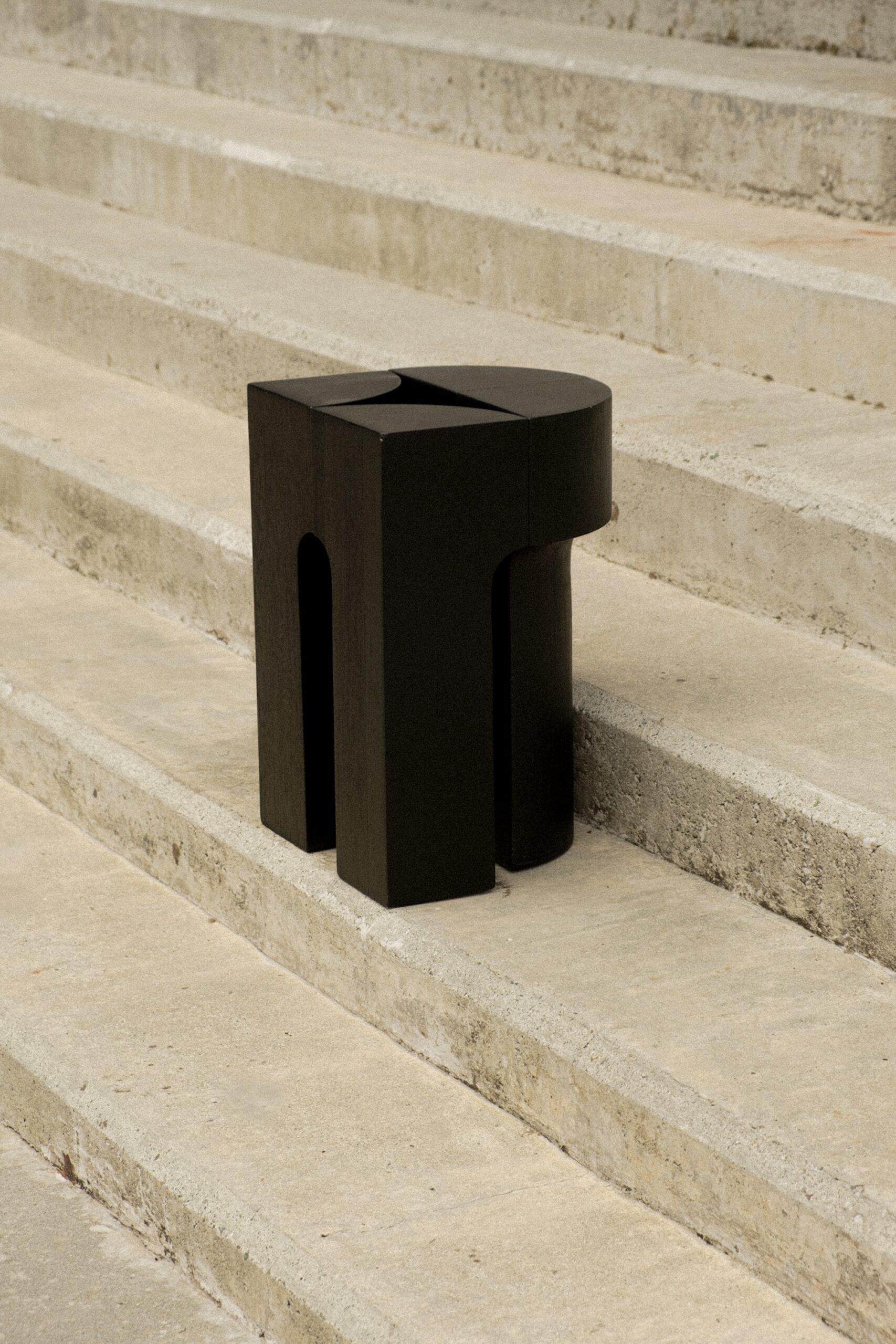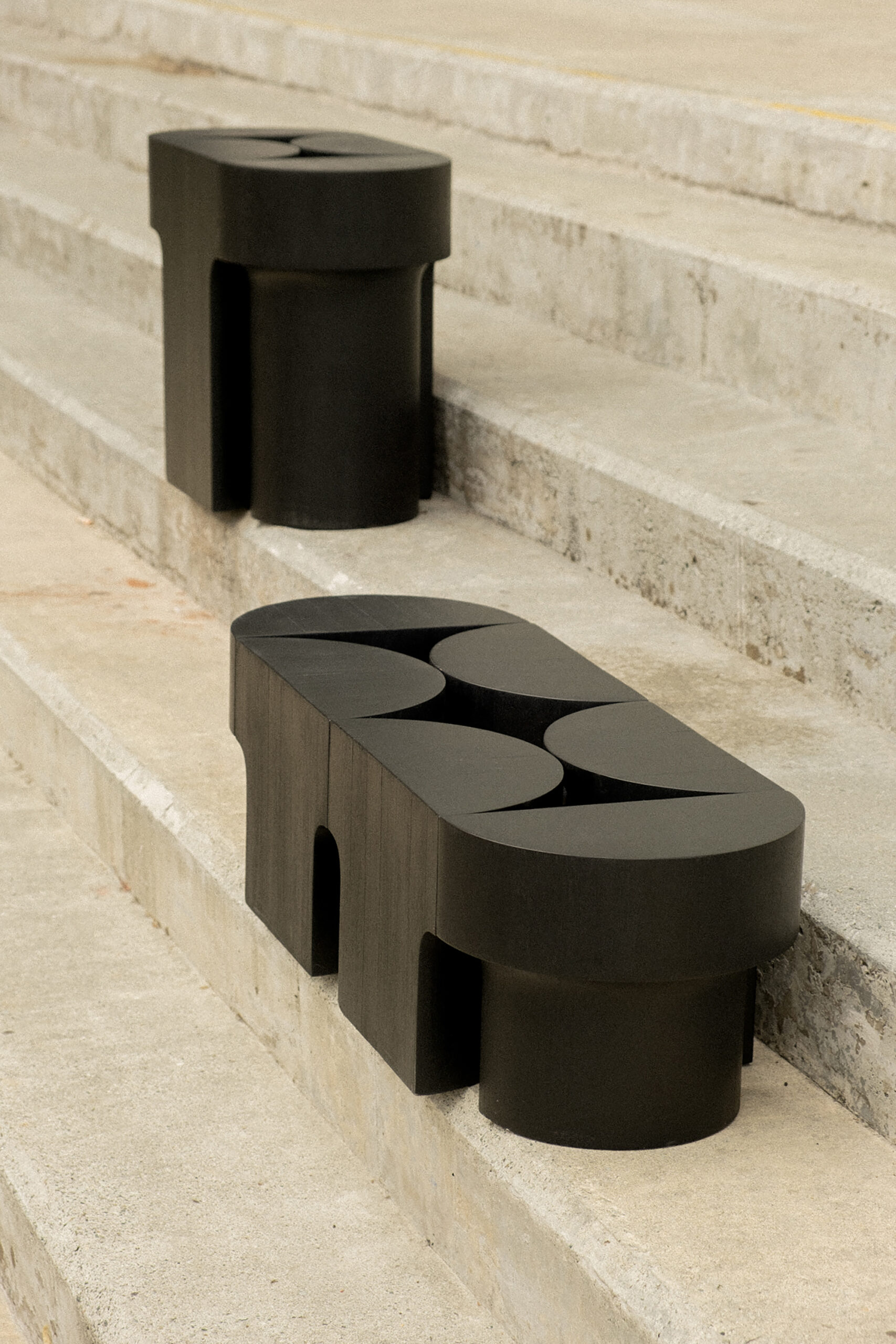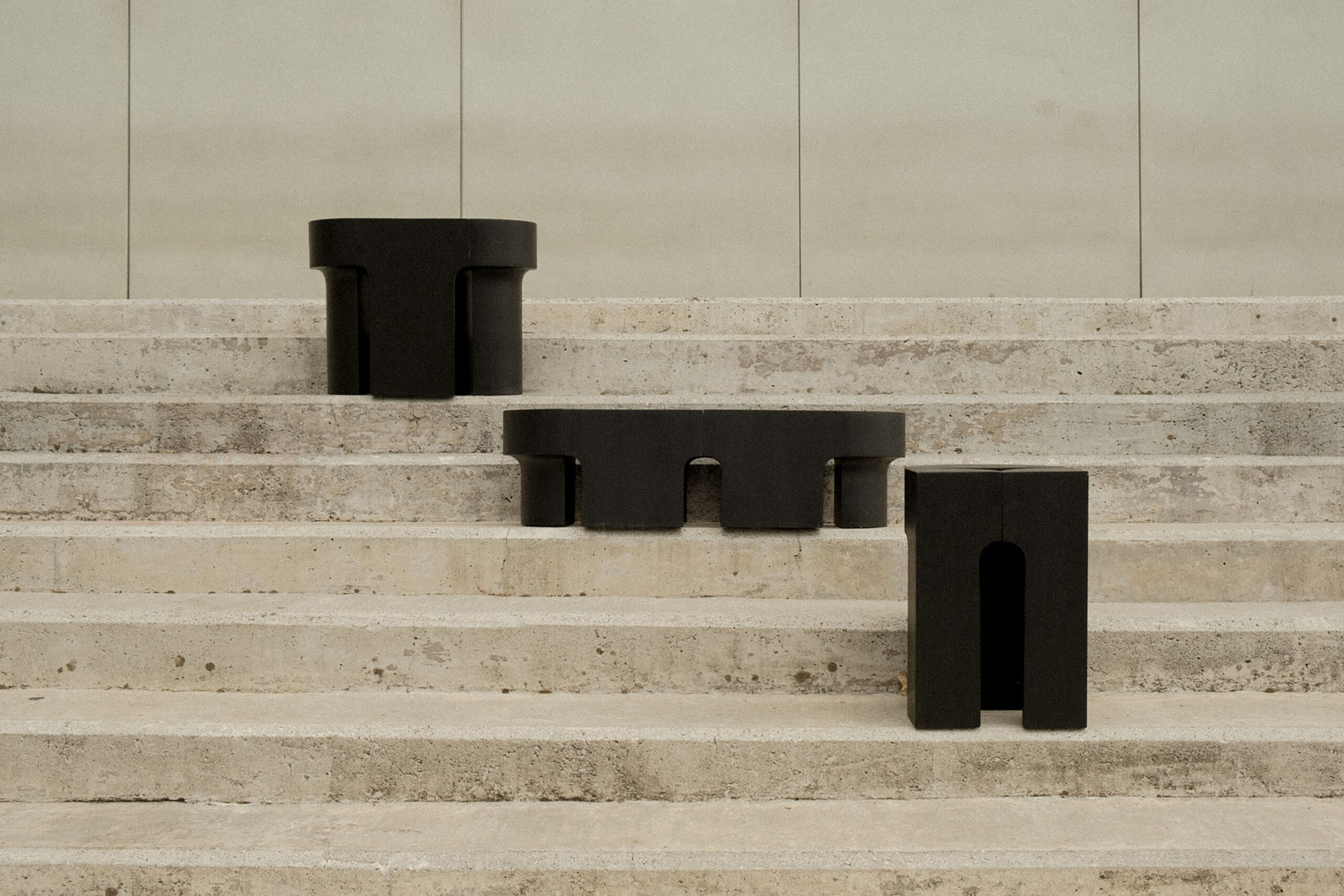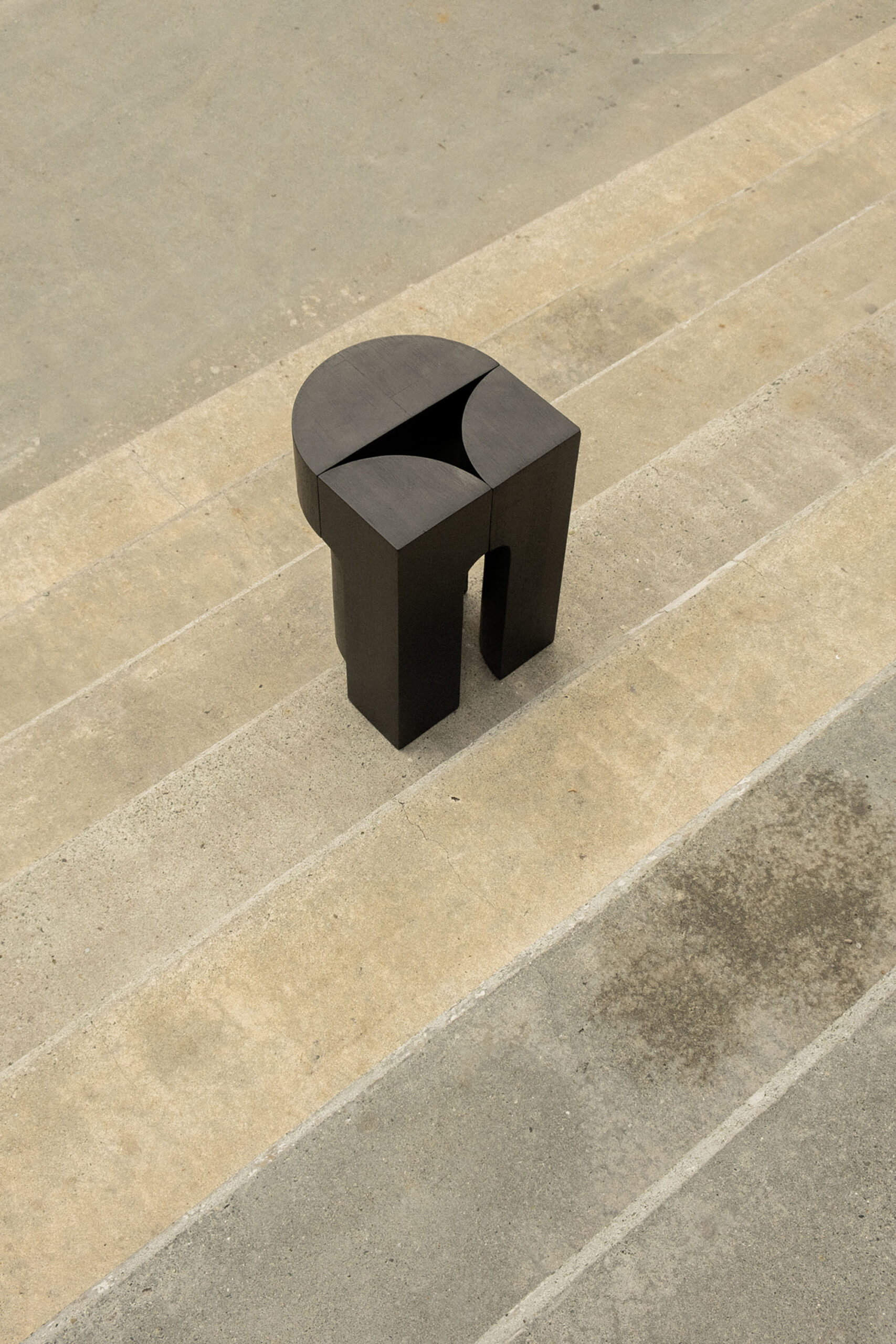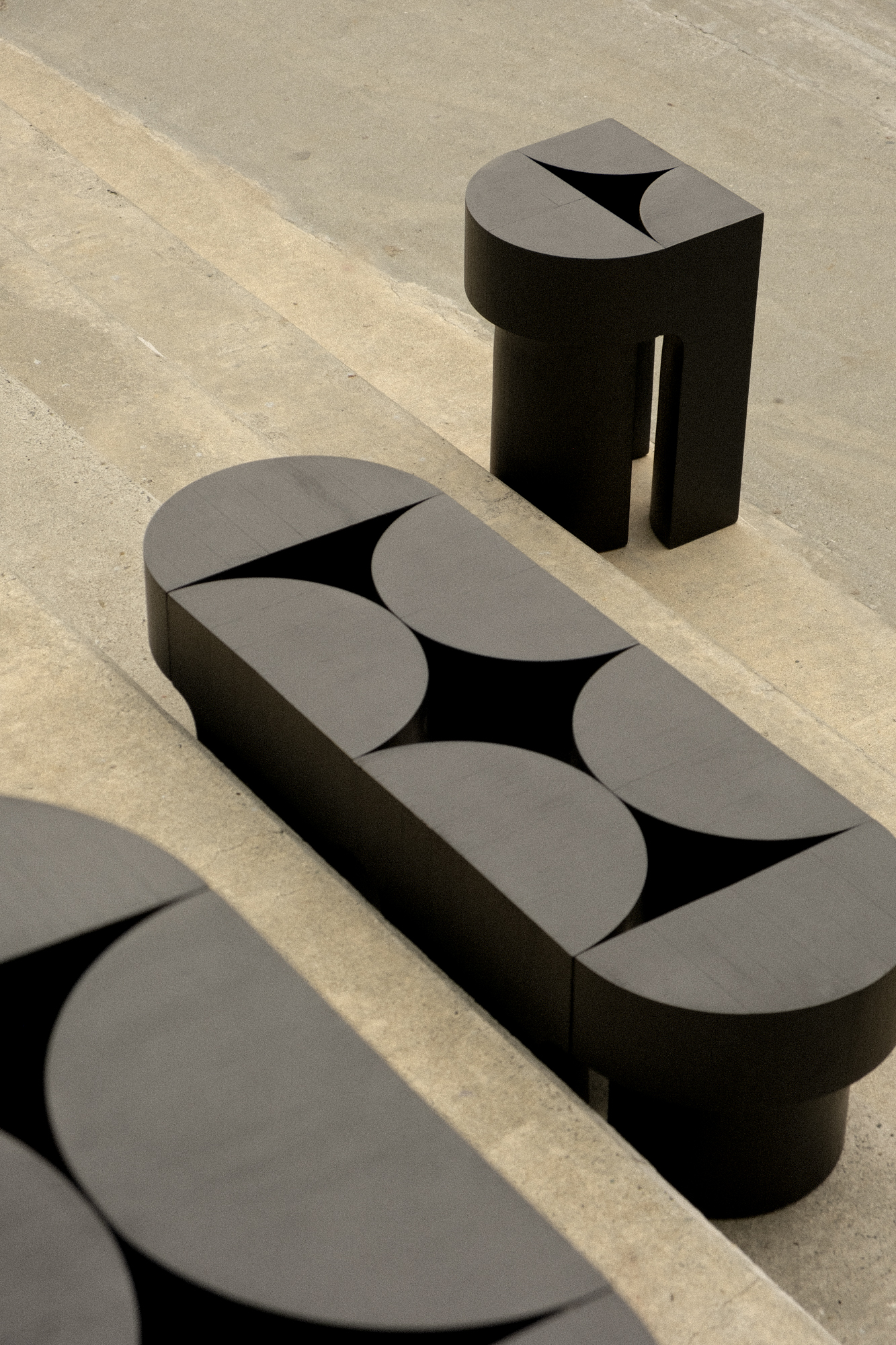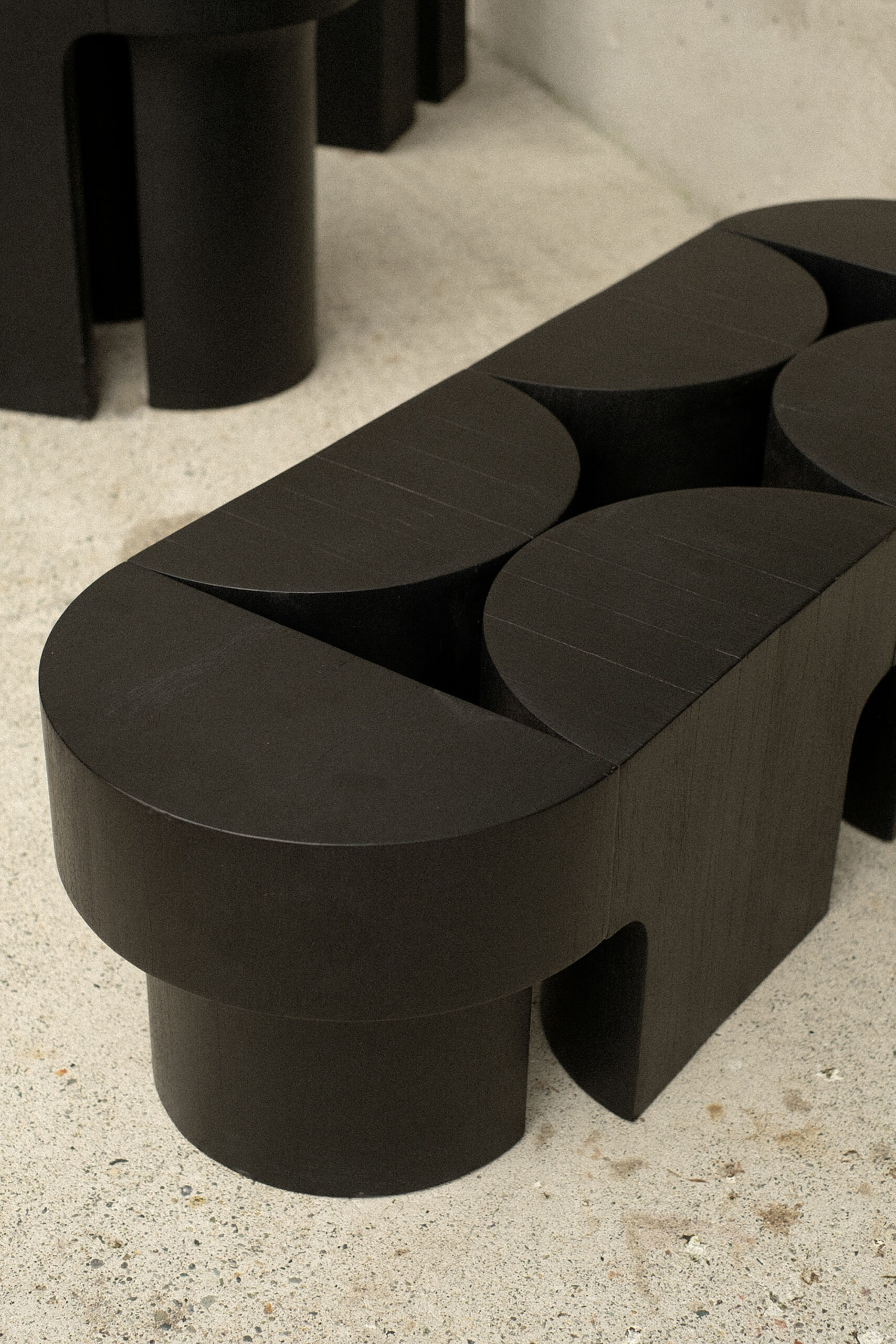En.torno is a minimalist side table created by Colombia-based designer Estefanía Agudelo. The work begins with the lathe, a tool historically associated with precision and repetition, but Agudelo redirects its purpose toward transformation. The pieces emerge not as static vessels but as stages of a process — essential form, manifestation, restoration, balance — a progression that echoes the phases of both craft and life cycles. This sequence is less about object typology and more about how each form embodies a moment in transition.
Material choice deepens the narrative. Natural oak, worked with a black-scraped finish, offers a layered reading of surface and depth. Oak, long revered in European furniture traditions for its durability and grain, gains new resonance when handled by Colombian artisans whose knowledge carries distinct regional inflections. The blackened finish heightens contrasts, almost fossilizing the tactile traces of turning, while also connecting to a broader lineage of charred wood practices seen in Japanese shou sugi ban or Nordic scorched pine. Here, however, the scraped texture softens the burn’s severity, translating it into a gesture of renewal rather than destruction.
The use of Inside Out Turning, a technique that reorients the lathe’s logic, disrupts expectations. Instead of prioritizing symmetrical exteriors, the process reveals interiors, inverting what is typically hidden. The result is a body of work that privileges void as much as mass, balance as much as tension. This reversal recalls postmodern experiments in craft during the late twentieth century, when makers like Mark Lindquist challenged the vessel form by emphasizing rupture, fissure, and axis shift. Yet Agudelo’s intervention avoids the theatricality of deconstruction. It leans instead toward a quiet minimalism, where each disruption is folded back into the search for equilibrium.
